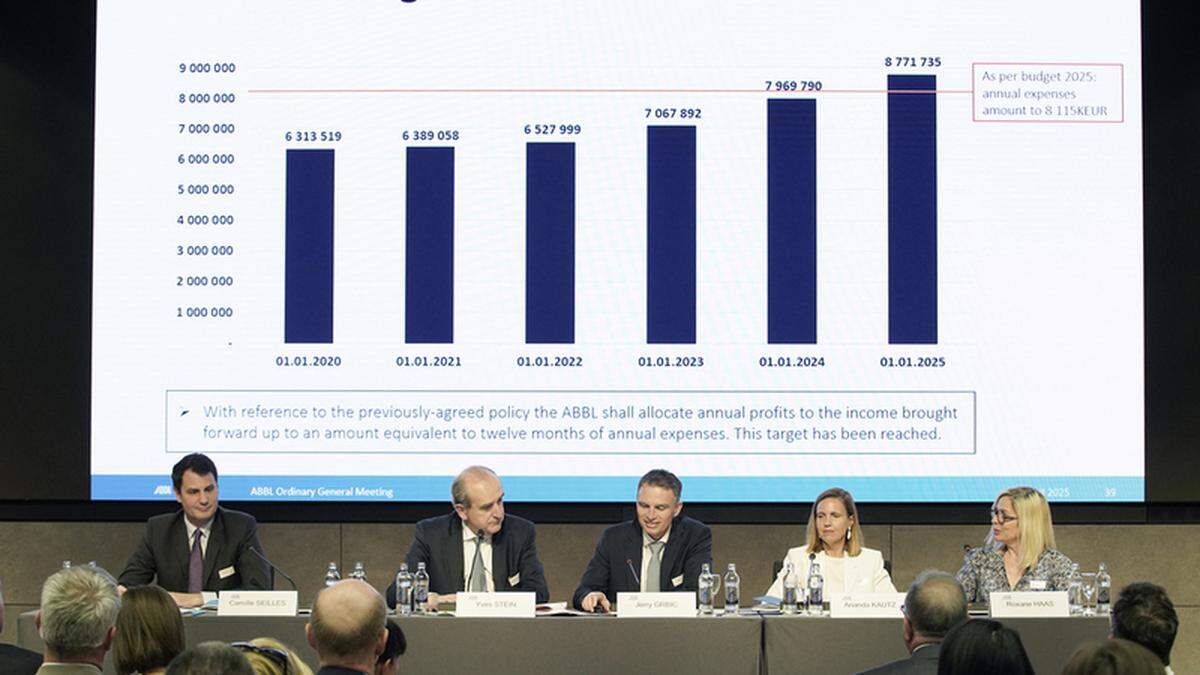Luxembourg’s banking sector remains resilient but faces significant headwinds from complex regulations, geopolitical uncertainty, and intense competition for talent, industry lobby group ABBL said in its 2024 annual report released on Wednesday.
The report highlights a profitable year for the sector, but also underlines the need for regulatory simplification and strategic adaptation to maintain the Grand Duchy’s competitive edge.
Luxembourg banks posted a collective net profit of €7.24 billion in 2024, a 10% increase from the previous year, largely driven by net interest income. The total balance sheet of the 115 banks operating in the country stood at €937.4 billion.
The total employment within the banking sector remained stable with 26,148 people employed compared with 26,285 in 2023.
However, the ABBL also highlighted significant challenges.
For Luxembourg, attracting the right kind of talent remains a problem, said ABBL chairman Yves Stein in his foreword for the report. “The reality is that a shortage of talent could become a significant obstacle to our growth. With over 1,500 vacancies in Luxembourg’s financial sector alone, we must intensify our efforts to build a strong pipeline of expertise,” Stein said.
He also noted that Europe, and Luxembourg within it, stands “at a crossroads.” He emphasised the escalating pressures from geopolitical tensions, public finance constraints, and demographic shifts, echoing the recent Draghi report’s call for private investment to fuel sustainable and digital transitions.
The ABBL also highlighted the challenges posed by “heightened regulatory requirements.” ABBL CEO Jerry Grbic mentioned burden of regulations posed MiFID II, Basel III/IV, AML directives, and the upcoming Digital Operational Resilience Act (DORA).
Also read:Why Luxembourg lags behind in instant bank payments
The ABBL also mentioned the EU’s new instant payments regulation, which requires banks to be able to handle incoming transfers instantly since January 2025 and outgoing payments by October 2025.
The association said it appreciates and understands the EU’s vision of a faster and more efficient payments system, but the transition is posing some challenges to banks. Specifically, it outlined the challenges of upgrading legacy systems, managing liquidity continuously especially outside business hours, and ensuring real-time compliance with AML/CFT regulations.
It said it is supporting members through this transition, which involves significant technical and operational adjustments.
Call for simplification
A recurring theme throughout the annual report, amplified in a dedicated “Simplification Paper” released concurrently, is the call for “smarter financial regulation.” The ABBL said that it is not advocating for deregulation but for a more effective regulatory framework. “One that enhances clarity and consistency and simplifies requirements while preserving essential policy objectives,” it said.
Both reports highlight the increasing complexity banks face, citing overlaps and conflicts between rules (such as AML requirements versus Instant Payment speed mandates, or DORA versus the Cyber Resilience Act) and the significant compliance burden.
The Simplification Paper notes that regulatory implementation costs consumed 38% of bank investment in 2019 and links this to Europe’s declining competitiveness against regions like the US.
Also read:What keeps Luxembourg financial CEOs up at night
It elaborates on the need for greater efficiency, particularly concerning data and reporting. It argues that excessive and duplicative reporting obligations create administrative overload, proposing a streamlined system where banks report granular data once, allowing different authorities to cross-reference.
The ABBL contends that regulatory transformation should actively foster innovation, supporting digital advancements and shared infrastructure like KYC databases. It also urged European supervisory authorities to consider competitiveness alongside financial stability.
